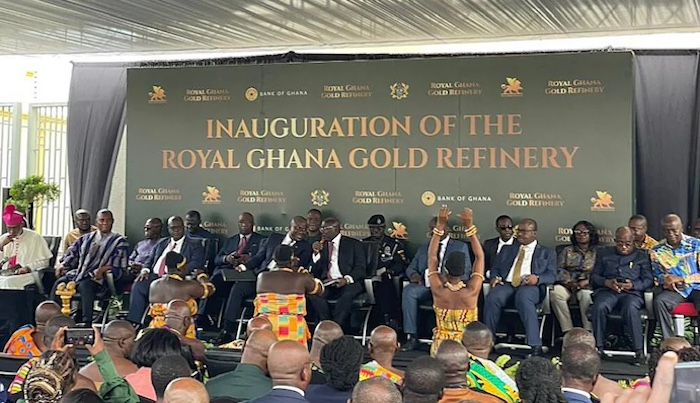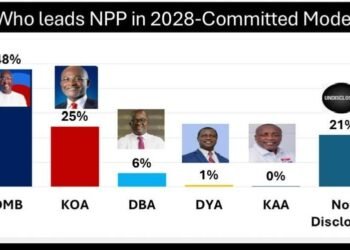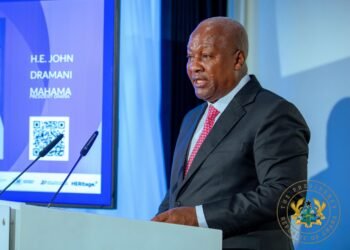In recent years, Ghana’s natural resource sector has witnessed a series of controversial initiatives that have sparked intense public concerns and debate.
Among these, the Agyapa Royalties deal stood out, symbolizing concerns about lack of transparency, corruption, nepotism, and the long-term interests of the country.
In a recent statement, IMANI Centre for Policy and Education, a leading Ghanaian policy think-tank, has brought to light another deal that it argued echoes the shadowy dealings of the infamous Agyapa deal, which is the Royal Ghana Gold Refinery project.
According to the policy think-tank, the Royal Ghana Gold Refinery, currently in its early phase, has reportedly cost less than $7.5 million according to insider sources, despite public discourse suggesting an investment range between $20 and $25 million.
This discrepancy raises eyebrows, with IMANI questioning whether the initial figures were inflated to obscure the true nature of the investment and its implications for Ghana.
One of the most striking revelations from IMANI’s statement is the role of “Rosy Royal,” an obscure Indian company purported to be the majority owner of the refinery.
“The intense international PR was to lead everyone in Ghana to believe that the refinery was built by and is majority owned by an obscure Indian company called “Rosy Royal”.
“It also aimed to erase from the public mind the existence of bigger, more sophisticated, and currently IDLE, gold refineries in the country. Ghana has almost a dozen gold refineries, by the way. Most of them are financially hamstrung due to a weak policy environment for local value addition”.
IMANI Centre for Policy and Education
The IMANI Centre for Policy and Education strongly posited that this move is less about enhancing Ghana’s gold refining capabilities and more about securing a permanent stream of cash flows for a select few.

Bank of Ghana’s Involvement
A critical point in IMANI’s exposé is the quiet yet significant involvement of the Bank of Ghana (BoG) in the project.
It argued that initially, the state’s equity in the refinery was held by the Precious Minerals Marketing Company (PMMC), Ghana’s national jeweler.
However, IMANI claimed that the Bank of Ghana has been primed to take over this equity, with plans to invest additional resources for various enhancements and trading capital.
This shift in equity from PMMC to BoG according to the policy think-tank is not merely a procedural change, however it represents a strategic maneuver that could see the Ghanaian state financing the entire refinery while retaining only a 20% stake.
This “carried interest” of 20%, according to IMANI, is nothing but a ruse—a deceptive move that would leave the state with minimal control over a project it effectively funded.
Furthermore, the IMANI Centre for Policy and Education raised concerns about the government’s efforts to redirect gold assaying and refining business from existing refineries to the new facility, starting with the BoG’s gold purchasing program.
This policy, initially perceived as a means to bolster Ghana’s gold reserves in the view of IMANI now appears to be part of a broader strategy to funnel business—and profits—toward the new refinery.
“Those who think that policy is merely meant to boost Ghana’s reserves should now revise their notes”, IMANI cautioned.
This revelation ties back to IMANI’s earlier criticism of the Gold for Oil deal, where shadowy middlemen were alleged to have played significant roles.
Perhaps the most damning aspect of IMANI’s analysis is the question of who truly owns the 80% equity stake in the Royal Ghana Gold Refinery.
“And here is the banger: the real owners of the 80% equity stake in the refinery cannot be the company the government has announced: “Rosy Royal”. We have examined its books over the last 6 years, and it never made any $20m+ investment to build a refinery anywhere. In fact, it runs a quarry and knows nothing about refining gold”.
IMANI Centre for Policy and Education
Moreover, the IMANI Centre for Policy and Education contended that the company has no personnel at the refinery, which is chaired by a politician well-known as the Eastern Regional Chairman of the ruling party, and managed by an independent consultant, the founder of New Delhi’s Rare Tech.
According to the policy think-tank, the total capital of Royal Ghana Gold Limited in Ghana is just over $76,000, far short of what would be expected for a company spearheading such a significant venture.
IMANI thus raised concerns, questioning if Rosy Royal is not the true owner of the 80% equity, then who is.
It asserted that the real owners have orchestrated a complex scheme to secure lucrative, long-term cash flows from Ghana’s gold resources without making any substantial upfront investment.
By positioning the Bank of Ghana as an equity partner, IMANI posited that the real owners are on track to have the state cover their initial investments, leaving them with control over a profitable venture while contributing little of their own capital.
In light of these revelations, IMANI’s statement serves as a clarion call for greater scrutiny and transparency in Ghana’s natural resource sector.
The parallels with the Agyapa Royalties deal are striking as both involve complex financial arrangements, questions of ownership, and the potential for significant long-term implications for Ghana’s economic sovereignty.
READ ALSO: GSE Encourages State-Owned Enterprises to List as GCGL Prepares for IPO























